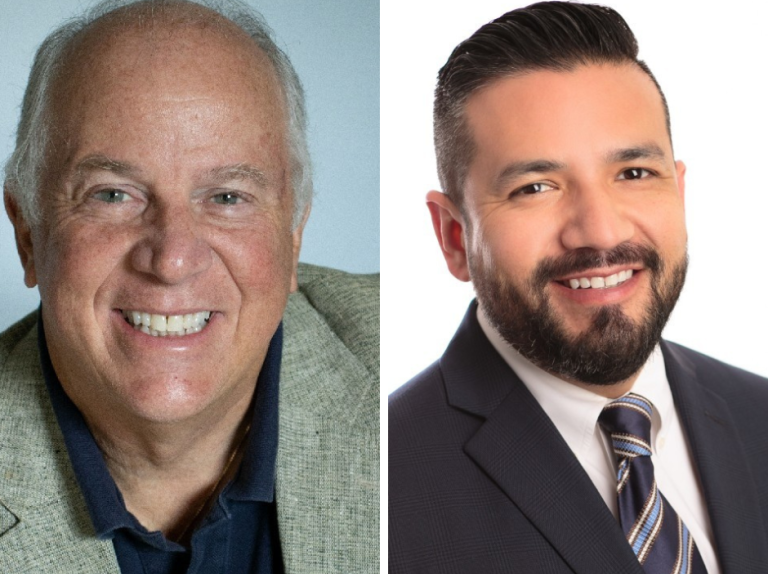
Our 2023 Advocacy Committee meets every two weeks to discuss the latest issues and threats that face destination organizations. In our inaugural quarterly release, below is a collection of all topics discussed and the collective notes and commentary from the advocacy committee co-chairs.
By Kurt Krause, VisitNorfolk and Gary Sanchez, Visit Dallas
Our Advocacy Committee meets every two weeks to discuss the latest issues and threats that face destination organizations. In our inaugural release, the Advocacy Committee co-chairs comment on all topics discussed during the previous quarter:
- Shifting away from the term ‘overtourism.’
- The possible banning of TikTok
- NTTW (USA) & NTW (Canada)
- Pride Month & Juneteenth.
Topic: Overtourism
Kurt: For the City of Norfolk, this conversation is quite timely. Not so much as whether the phrase should be overturned but more importantly understood well in advance of visitor demand. In 2025, our city will experience a significant increase in cruise activity with Carnival Cruise Line scheduling weekly trips originating from our Elizabeth River, through Chesapeake Bay, and onward to the planned destination via the Atlantic Ocean. Sounds exciting, combining the rich history of the region, great culinary scene, the world’s largest Naval base, and walkable city with the adventures of a cruise. But this idyllic scenario comes with tremendous risk if not addressed.
We have 18 months to educate our residents on the value and benefits of 200,000 new and/or returning visitors. We can learn from other cruise destinations how best to overcome negative sentiment. We need to develop a community-based model that engages and includes our residents in memorable experiences. In essence, inspire the residents to be part of the “collective” tourism future. This ultimate strategy should attract stakeholders who create value, activating places and spaces, supporting community engagement, while balancing the needs of residents and visitors. We must seek to understand what the residents are feeling in terms of their sentiments towards cruises and tourism in general. Learn flash point issues in the community that could cause conflict and how that is impacting the locals. Monitor any anti-tourism sentiments.
It may be time to eliminate the phrase overtourism, but not without a collective and collaborative effort to be hospitable hosts.
Gary: It’s clear to recognize and understand the value of tourism in any destination: business development, economic impact and growth, jobs, tax revenue, etc. The challenge with tourism surfaces when a destination experiences an abundance of visitors and creates obstacles (and often conflicts) between residents and guests, a term used since 2015 as overtourism. When one hears the term overtourism, it may stoke images of long lines at airports, families with children waiting for an amusement park ride, bumper-to-bumper traffic, jammed restaurants, museums, beaches, or other attractions – all images and situations that conjure negative connotations for both the traveler and the resident. However, the effects of many visitors to a destination go beyond the inconveniences of long lines and overcrowding. Important things such as infrastructure, utilities, housing costs, natural resources, and more are impacted by visitors to any destination, so one can empathize with residents when they are affected by many guests visiting their home community.
Overtourism is a true reality for some destinations (and for many others it could be a hopeful wish). As we discussed, the term overtourism may not be truly representative of the issues at the core of any destination: community awareness and engagement. As mentioned by a DI Advocacy Committee member, “the underlying condition of overtourism is disengaged citizens and stakeholders.” This factor creates a multitude of opportunities for DMOs and other travel/tourism professionals to share the value our work brings to the community, and for us to listen and understand what concerns, expectations and outcomes residents and stakeholders have. If executed appropriately, this approach may yield results benefiting all stakeholders, leading us to a more appropriate term: destination stewardship. The concept of destination stewardship supports the development and sustainability of a shared future for all community members in a collaborative and mutually beneficial way. This, combined with strategic marketing, seasonality planning, and ongoing community engagement, can lead to an ideal, balanced position for the destination, DMO, visitor, resident, and business community.
Another challenge with the term overtourism is that it strikes a static, definitive tone; it presents no solution, no call to action. Destination stewardship is kinetic and invites all to work toward a common goal while also considering the environmental impact and sustainability of the community.
Topic: TikTok
Kurt: The state of Montana has become the first state to ban TikTok effective January 1, 2024. Signed into law as a safeguard over the Chinese government, protecting the data of Montana residents. I will be the first to admit that I do not know enough to make a logical statement or take an active position. However, the platform is no different than others in being a vehicle for destination marketing and promotion. As our funding becomes less and less from our City Council, social channels become more attractive to distribute promotional content. Few can argue that the platform allows consumers who visit the destination to post their authentic thoughts about visiting and ways in which they felt welcomed citing what they liked and did not like about the destination. For destination organizations this presents an opportunity to grow followers organically. Compounding our strategic direction, marketing on TikTok could have tremendous benefits. The platform allows for a destination to come alive through sight, sound, and spirit more than still photos could. What becomes more obvious every day, if we do not directly use TikTok, our destination, as well as our visitors are. One could argue that we at the very least have the opportunity if not responsibility to help shape perceptions.
Gary: A college student posts a TikTok of dancing racoons, hot dog eating contests and the latest dance craze. A visitor to Dallas posts a TikTok on pink drinks, the best tacos in town, and yoga at Klyde Warren Park. What does that have to do with the price of (item of your choice) in China? Apparently for some individuals – specifically, legislators – it has a lot to do with it! In May 2023, Montana became the first state in the United States to ban TikTok from operating within the state. Citing “the Chinese Communist Party using TikTok to spy on Americans, violate their privacy, and collect their personal, private, and sensitive information," Governor Gianforte signed the bill into law and goes into effect on January 1, 2024. Although there is nothing to support the notion that the Chinese government has sourced TikTok user data, more states are considering similar bans of the popular social media platform. As of April 2023, at least 34 states have announced or initiated bans on state government agencies, employees, and contractors from using TikTok on government-issued devices. However, some state bans only affect government employees and do not prohibit private citizens from having or using TikTok on their personal devices. As DMOs and travel/tourism/meeting professionals, we are charged with promoting our destination through traditional media and non-traditional outlets (i.e., social media). The unfortunate politicization of TikTok has unintended consequences as it relates to how we successfully do our jobs of promoting our destination. Moreover, the social media platform is gaining traction among younger audiences, those who are the future travelers, tourists, spenders, and meeting professionals in our industry. As we progress forward, we must ensure what we have representation as these discussions are being had and decisions being made, both at a local and national level.
Topic: NTTW & NTW
Gary: Every year, Canada and the United States celebrate Canadian Tourism Week (CTW) and National Travel and Tourism Week (NTTW), respectively. Although we showcase and celebrate our industry in a variety of ways throughout the year, CTW and NTTW are the dedicated weeks when we collectively celebrate our work and demonstrate the significant value we bring to our community and country. At a quarterly DI Advocacy Committee, we shared how destinations and industry partners celebrated CTW and NTTW this year. Celebrated 24-30 April, this year’s theme of CTW was Canada: Powered by Tourism. This year’s celebration was an invitation for all tourism partners – from coast to coast – to gather, champion and promote Canada’s destinations, tourism businesses, and employees. As stated by Randy Boissonnault, Minister of Tourism and Associate Minister of Finance, "Tourism creates jobs in every region of the country and empower communities large and small, in our rural and remote areas, and on ancestral Indigenous lands. No other sector of the economy can claim a reach that is as geographically diverse or demographically inclusive as tourism." Canada continues to ensure that the travel and tourism industry thrives and has invested $158 million in the current budget to ensure Canadian and indigenous partners advance the goal of tourism. As part of this year’s CTW activation, landmarks, attractions, venues, hotels, and other industry partners participated by illuminating in green as part of its #GreenMeansGo campaign, which raised awareness for the industry’s economic, social, and cultural significance.
In the United States, 2023 was a celebration of the 40th Anniversary of National Travel and Tourism Week. Celebrated 7-13 May, destinations and travel/tourism partners celebrated by creating activations with local community stakeholders, hosting celebrations at visitor centers, and organizing public rallies to celebrate travel. NTTW also presented opportunities to engage with local and state elected officials to reinforce the importance of the travel/tourism/meetings/conventions/sports travel industry and advocate for travel-friendly policies.
Other ideas shared at our meeting included the development of a scholarship program to benefit students pursuing a career in hospitality and utilizing NTTW as time for community engagement to gather resident sentiment and raise awareness how our work contributes to the community. Additionally, with the rise in cannabis travel, NTTW was a wonderful opportunity to share how the tourism industry can be supported through a cannabis lens. As we continue to observe, the mainstream active leisure and cannabis travel trend continue to intersect at every part of the travel economy, benefiting hotels, tours operators, and many others affiliated with the tourism industry.
This year’s CTW and NTTW was also an opportunity to recognize the advancement of policies as we continue to recover from the COVID-19 pandemic. In Canada, 2023 was a celebration of the removal of border restrictions, and in the United States, we celebrated the lifting of vaccination requirements for international inbound travelers.
Topic: Pride Month & Juneteenth
Kurt: The city of Norfolk has shown tremendous support for celebrating Pride month, as well as celebrating the end of enslavement in the United States. There is great interest and support for DEI efforts. We position ourselves to encourage residents of Norfolk to be curious to learn what this day is about, and to do so with respect. VisitNorfolk provides a sponsorship with the hope that the holiday will encourage people to talk about what is needed to move forward and be an example for other cities to follow. Juneteenth isn’t a Black thing, it’s not a Texas thing. It’s about freedom for everybody. If we have joblessness, homelessness, education gaps, and health care that some can get and others can’t, we have work to do. Juneteenth begs us to reflect and improve. This is another opportunity to sensitize ourselves, opt in, and learn from people’s experiences so we can do better. Be better.
Gary: It’s delightful that more communities across the United States are embracing LGBTQ+ Pride Month. Mostly celebrated in June to commemorate the 1969 New York City Stonewall riots, destinations celebrate Pride Month in a variety of ways. Once only celebrated in large cities (i.e., New York City, Los Angeles, San Francisco), smaller communities are beginning to recognize Pride Month. In Texas, Dallas has celebrated Pride Month for decades (2023 marked the 40th Anniversary of Dallas Pride); however, in recent years, smaller communities in North Texas have launched Pride events, including Arlington, Frisco, Carrollton, and several others.
With President Bill Clinton declaring June in America Gay and Lesbian Pride Month in 1999, followed by President Barack Obama expanding Pride Month to the entire LGBT spectrum in 2011, most cities celebrate Pride Month in June. However, some cities celebrate the event during other months of the year – October in Atlanta, GA, November in Palm Springs, CA. The reasoning for this could be seasonality, or perhaps to be less competitive with neighboring communities and destinations.
The U.S. embracing and celebrating the LGBTQ+ community has had influence throughout the globe, resulting in cities across Canada, Mexico, South America, Europe, Asia, Australia, and others hosting wonderful Pride events, drawing in thousands of visitors and dollars into their communities.
DI Advocacy Committee members shared ideas on how their destinations or organizations celebrate Pride Month. Examples included full activations at Pride festivals and parades, a robust marketing/social media campaign, staff training and educational sessions, and more.
In recent years, the celebration of the LGBTQ+ community has had its challenges with anti-LGBTQ+ legislation gaining traction across the United States. Per the Human Rights Campaign (HRC), 2023 was a record year for anti-LGBTQ+ legislation: 520 bills filed and 70 bills passing state legislatures. As travel and tourism professionals charged with promoting our destinations as welcoming communities, this type of activity makes our jobs more difficult, but even more important for the future of our industry and communities.
Although celebrated by many for more than 150 years – most especially in the southern United States – Juneteenth did not become an official federally-recognized holiday until 2021 by President Joe Biden. The recognition of Juneteenth expands our knowledge of history and slavery in the United States, and how although the Emancipation Proclamation went into effect in 1863, it was not until June 19, 1865, when emancipation and the freedom of enslaved individuals arrived at the southern tip of Texas.
Juneteenth has been celebrated in Dallas for many years, with Juneteenth Unity Weekend aligning with Dallas Southern Pride/Dallas Black LGBTQ+ Pride, bringing in thousands of guests into the city for a three-day celebration of festivals, marches, family programming, and more. With the recognition as a federal holiday, Juneteenth celebrations will continue to expand beyond the southern United States. Furthermore, the holiday is another day off for many individuals, which can spur more additional summer travel.
As with Pride Month, the United States has had influence on other countries to recognize diverse communities, history, and heritage. In Canada, Emancipation Day is celebrated on 1 August and recognizes the Slavery Abolition Act of 1833. Originally named National Aboriginal Day, Prime Minister Justin Trudeau declared 21 June National Indigenous Peoples Day in Canada. Both holidays present educational opportunities for residents and visitors, occasions to recognize the continuous struggle for Human Rights, and moments to celebrate diverse cultures and heritages.


